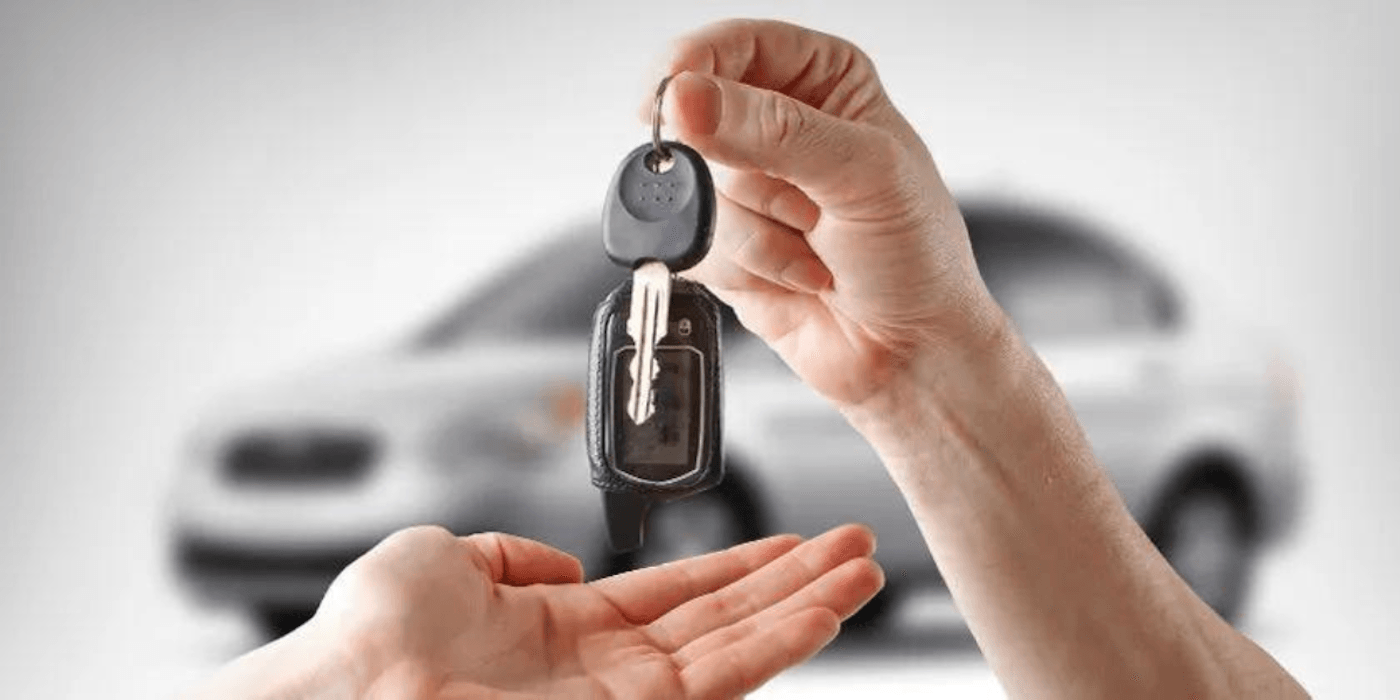Is Buying an Extended Car Warranty Worth It For a Used Car?

An extended car warranty is a valuable option for both new and used cars, providing additional coverage beyond the manufacturer's warranty. This type of warranty kicks in after the manufacturer's warranty expires and offers protection for selected components of the vehicle, such as the engine, transmission, or differential. The coverage items included in an extended car warranty vary depending on the policy you choose. Some warranties provide comprehensive coverage, often referred to as "bumper-to-bumper" warranties, which cover a wide range of mechanical and electrical parts. However, it's essential to carefully read the product disclosure statement to understand what is specifically covered, as normal wear and tear is typically not included.
The cost of extended warranties can vary significantly, ranging from affordable bargain basement policies to more comprehensive and expensive options. It's crucial to assess the warranty cost in relation to the potential repair costs you may face without coverage. When purchasing an extended car warranty, always refer to the product disclosure statement provided by the warranty company. Understanding the terms and conditions, including any exclusions, will help ensure that you have a clear understanding of the coverage and can make an informed decision.
Key Takeaways
- Extended car warranties can provide valuable protection for both new and used vehicles
- Coverage varies widely, so it's important to review the product disclosure statement carefully
- Warranty costs should be weighed against potential repair expenses without coverage
- Understanding the terms and exclusions is crucial when making an informed decision

Understanding Extended Car Warranties

An extended car warranty extends the warranty period beyond the manufacturer's warranty and covers certain repairs and maintenance expenses. It can be beneficial for both new and used car owners in Australia, providing protection against unexpected repair costs and potentially increasing the value of your vehicle. Extended warranties are available through various sources such as the dealership, third-party warranty providers, or the manufacturer itself.
What is an Extended Car Warranty?
An extended car warranty is a type of extended warranty that provides additional coverage beyond the manufacturer's warranties available for your vehicle. This coverage can be particularly valuable if you plan to keep your car for an extended period, as it can help protect you from the costs of unexpected repairs once the original factory warranty has expired.
Dealer vs. Manufacturer Extended Warranty
When considering an extended car warranty, you have the option to purchase coverage through the dealership where you bought the vehicle or directly from the manufacturer. Dealership warranties may offer more personalised service and convenience, while manufacturer extended warranties often provide broader coverage and may be transferable from owner to owner. It's important to carefully review the product disclosure statement to understand the specific warranty restrictions and servicing limitations associated with each option.
Factors to Consider for Extended Car Warranty
When deciding whether to purchase an extended car warranty, there are several important factors to consider.
Type of Car
The type of car you own plays a significant role, as more expensive or less reliable vehicles may have a higher risk of failure and potential repair costs, making an extended warranty more valuable. For example, if you own a luxury or high-performance vehicle, the extended warranty can provide valuable protection against the potentially higher repair expenses associated with these types of cars.
Amount of Driving
Your driving habits, in terms of the amount of driving you do, also impact the potential need for an extended warranty. Vehicles driven frequently are more likely to encounter issues requiring costly repairs, making an extended warranty a wise investment to safeguard against these potential expenses.
Duration of Ownership

The duration for which you plan to own the vehicle is another crucial factor. An extended warranty can provide continued coverage and protection if you intend to keep the car beyond the manufacturer's warranty period, ensuring you're covered for a more extended period and potentially increasing the resale value of your vehicle.
Extended Warranty Coverage
When evaluating an extended warranty, it's important to thoroughly understand the coverage offered. This includes the specific components and systems that are covered, as well as any exclusions or limitations. Carefully reviewing the details can help you determine if the warranty aligns with your needs and the potential repair costs you may face.
Cost of the Extended Warranty
Finally, the cost of the extended warranty is a significant factor to consider. Weigh the cost of the warranty against the potential repair costs you may face without coverage. This can help you determine if the extended warranty is a worthwhile investment, particularly for more expensive or less reliable vehicles where the warranty may provide greater value.
Limitations and Exclusions

When considering an extended warranty for your vehicle, it's crucial to understand the limitations and exclusions that may apply. One aspect to be aware of is that many extended warranties provide limited coverage for wear and tear. This means that certain components or repairs may not be covered under the warranty terms.
By carefully reviewing the product disclosure statement, you can gain a clear understanding of the coverage included in the extended warranty. This will allow you to evaluate whether the limited coverage aligns with your vehicle's condition and any potential issues it may encounter during the warranty period.
Limited Coverage for Wear and Tear
It's important to note that normal wear and tear on various components or repairs is typically not covered by extended warranties. This means that you may be responsible for the costs associated with the gradual deterioration of parts, even if they fall within the warranty period.
To make an informed decision, take the time to understand the coverage provided by the extended warranty and assess whether it adequately addresses your vehicle's specific needs and any foreseeable issues it may face.
Restrictions and Considerations with Extended Warranties

When considering an extended car warranty, it's crucial to be aware of the various restrictions and limitations that may come with it. One key factor to consider is the warranty servicing requirements. Many extended warranties mandate that all servicing and repairs be conducted exclusively at specific dealerships or service centers to maintain the validity of the warranty. This can often lead to higher servicing costs compared to using an independent mechanic.
Warranty Servicing
The servicing requirements imposed by some extended warranties can be quite restrictive. You may be required to have all maintenance and repairs performed at authorised dealership or service center locations, even if you have a preferred independent mechanic you trust. This can result in higher servicing costs and potentially limit your flexibility in choosing a repair facility that best suits your needs.
Repair Facility Limitations
In addition to the servicing requirements, some extended warranties may also have limitations on the repair facilities you can use. This could mean that you're restricted to using only the dealership or service centers specified by the warranty provider, rather than being able to choose the mechanic or repair shop that you prefer. This lack of flexibility can be a significant consideration when deciding whether an extended warranty is the right choice for your vehicle.
Is Car Warranty Worth It?

When deciding whether an extended car warranty is worth it, it's essential to weigh the cost and coverage options against the potential repair expenses you may face without the warranty. Consider the reputation of the warranty provider, whether it is the dealership, a third-party provider, or the manufacturer, as this can impact the level of service and support you receive.
Additionally, factor in the warranty period and how long you plan to keep the car, as well as the potential impact on the value and resale value of your vehicle. By carefully evaluating these factors, you can make an informed decision about whether an extended car warranty aligns with your specific needs and budget.
Assessing Your Vehicle's Reliability

When deciding whether an extended car warranty is worth the investment, it's essential to assess your vehicle's reliability. This includes researching the brand reputation, reviewing the vehicle history, and examining the maintenance records. Understanding the potential issues commonly associated with your make and model, as well as the typical repair costs, can help you make an informed decision about the value of an extended warranty. By thoroughly evaluating your vehicle's reliability, you can better determine if the added coverage provided by an extended warranty is a worthwhile investment for your specific circumstances.
Brand Reputation
Researching the brand reputation of your vehicle can provide valuable insights into its reliability. Look into the manufacturer's track record, consumer reviews, and industry ratings to gauge the overall quality and durability of the make and model you own. A strong brand reputation can indicate a lower likelihood of experiencing costly potential issues, which may make an extended warranty a more attractive option.
Vehicle History
Reviewing the vehicle history is an essential step in assessing your car's reliability. By accessing reports that detail the vehicle's past ownership, accidents, and repair records, you can get a better understanding of its condition and any potential issues it may have faced. This information can help you determine whether an extended warranty would be a prudent investment to protect against future repair costs.
Maintenance Records
Examining the maintenance records of your vehicle can also shed light on its reliability. Well-maintained cars are less likely to experience unexpected breakdowns, making an extended warranty less essential. Conversely, if the maintenance history shows neglect or irregular servicing, an extended warranty may be a wise choice to safeguard against potential issues and repair costs. Thoroughly reviewing the maintenance records can help you make an informed decision about the value of an extended warranty.
Alternatives to Extended Car Warranties

While extended car warranties can provide valuable protection, there are also alternative options to consider that may better suit your needs.
Setting aside savings specifically for unexpected repair costs can be a cost-effective alternative, allowing you to cover any issues that arise without the added expense of an extended warranty. Additionally, some credit cards offer purchase protection that can cover certain repair costs, and mechanical breakdown insurance policies can provide an alternative form of coverage. When exploring these alternatives, it's important to thoroughly research and compare the options to determine which one best fits your specific needs and financial situation.
Savings for Unexpected Repairs
Creating a dedicated savings fund for unexpected car repairs can be a savvy alternative to an extended warranty. By setting aside a portion of your budget each month, you can build up a financial buffer to cover any unforeseen issues that may arise with your vehicle. This approach allows you to maintain control over your spending and potentially save more in the long run, compared to the cost of an extended warranty.
Credit Card Purchase Protection

Many credit cards offer purchase protection benefits that can cover the cost of certain repairs or even the replacement of your vehicle. By using your credit card to make the initial purchase, you may be able to take advantage of these protections, potentially eliminating the need for a separate extended warranty. It's important to thoroughly review the terms and conditions of your credit card's purchase protection to understand the coverage and any limitations.
Mechanical Breakdown Insurance
Mechanical breakdown insurance (MBI) is an alternative form of coverage that can provide financial protection for unexpected repairs. Unlike an extended warranty, MBI is a standalone insurance policy that can be purchased separately. This option may offer more flexibility in terms of coverage and cost, allowing you to tailor the policy to your specific needs and budget. When considering MBI, be sure to research the available options and compare the coverage to find the best fit for your vehicle and driving habits.
Conclusion
In conclusion, whether an extended car warranty is worth it for your used car depends on a variety of factors, including the type of vehicle, your driving habits, the duration of your ownership, the coverage provided, and the cost of the warranty. It's essential to carefully review the limitations and exclusions of any extended warranty, as well as consider alternative options, such as savings for unexpected repairs or mechanical breakdown insurance.
By weighing the potential benefits against the associated costs and risks, you can make an informed decision that aligns with your individual needs and provides the desired level of financial protection. Ultimately, the decision to purchase an extended car warranty should be based on a balanced assessment of your specific circumstances and the potential impact on your overall vehicle ownership experience.
Carefully evaluating the extended car warranty, its limitations and exclusions, as well as exploring alternatives like savings or insurance, can help you make an informed choice that aligns with your individual needs and financial situation. Striking the right balance between the cost of the warranty and the coverage it provides is key to ensuring you get the best value and protection for your used car.
How Driva Can Help You Finance Your Next Vehicle Purchase
New car buyers often consider purchasing an extended warranty to provide peace of mind and protect their investment. With Driva, you can easily finance your next vehicle purchase and also buy an extended warranty to cover potential extra servicing costs. Driva compares rates from 30+ lenders to ensure you get the best rate for your auto loan. Whether the extended warranty covers a new vehicle or an older vehicle, Driva provides personalised rates to enter the option to buy an extended warranty. Driva also offers transparent and no hidden fees for the warranty you choose, making it easy to see the value of the warranty for your car.
Frequently Asked Questions
Is it worth buying an extended car warranty for a used car?
The decision to buy an extended car warranty for a used car depends on individual circumstances. Consider factors such as the age of the car, mileage, and your plan to keep the car for a longer period.
What does an extended car warranty cover?
An extended car warranty may cover repairs and replacements for certain components of your vehicle, often including the powertrain. It may also include roadside assistance and trip interruption benefits.
Should I buy an extended warranty from the dealership?
While you can purchase an extended warranty from the dealership, explore other warranty plans from third-party providers to compare prices and coverage before deciding.
Is an extended car warranty worth the cost?
Whether an extended car warranty is worth the cost depends on factors such as the type of coverage, the likelihood of needing repairs, and your peace of mind. Evaluate the terms and coverage offered before purchasing.
What types of warranties are available for new or used cars?
There are typically two types of warranties available: manufacturer warranties that come with the new car purchase and extended warranties that can be purchased separately.
Does an extended car warranty cover rental car expenses?
Some extended warranties may include rental car coverage for when your vehicle is being repaired, but it's important to review the terms of the warranty to confirm this coverage.
Can the dealership pressure you into purchasing an extended warranty?
While some dealerships may recommend an extended warranty, it is ultimately your decision whether to purchase it. Take your time to review the terms and make an informed choice.


.png)







